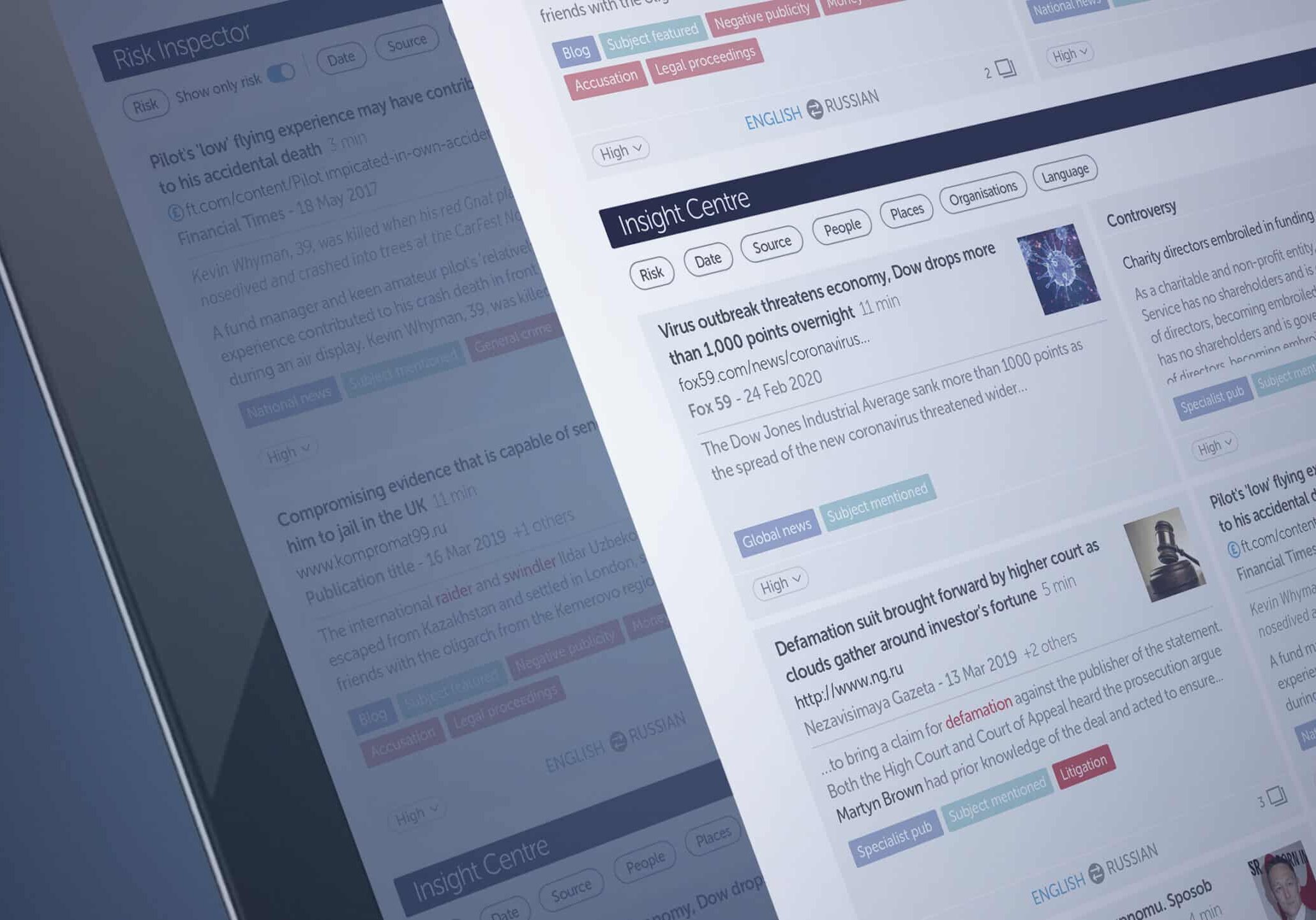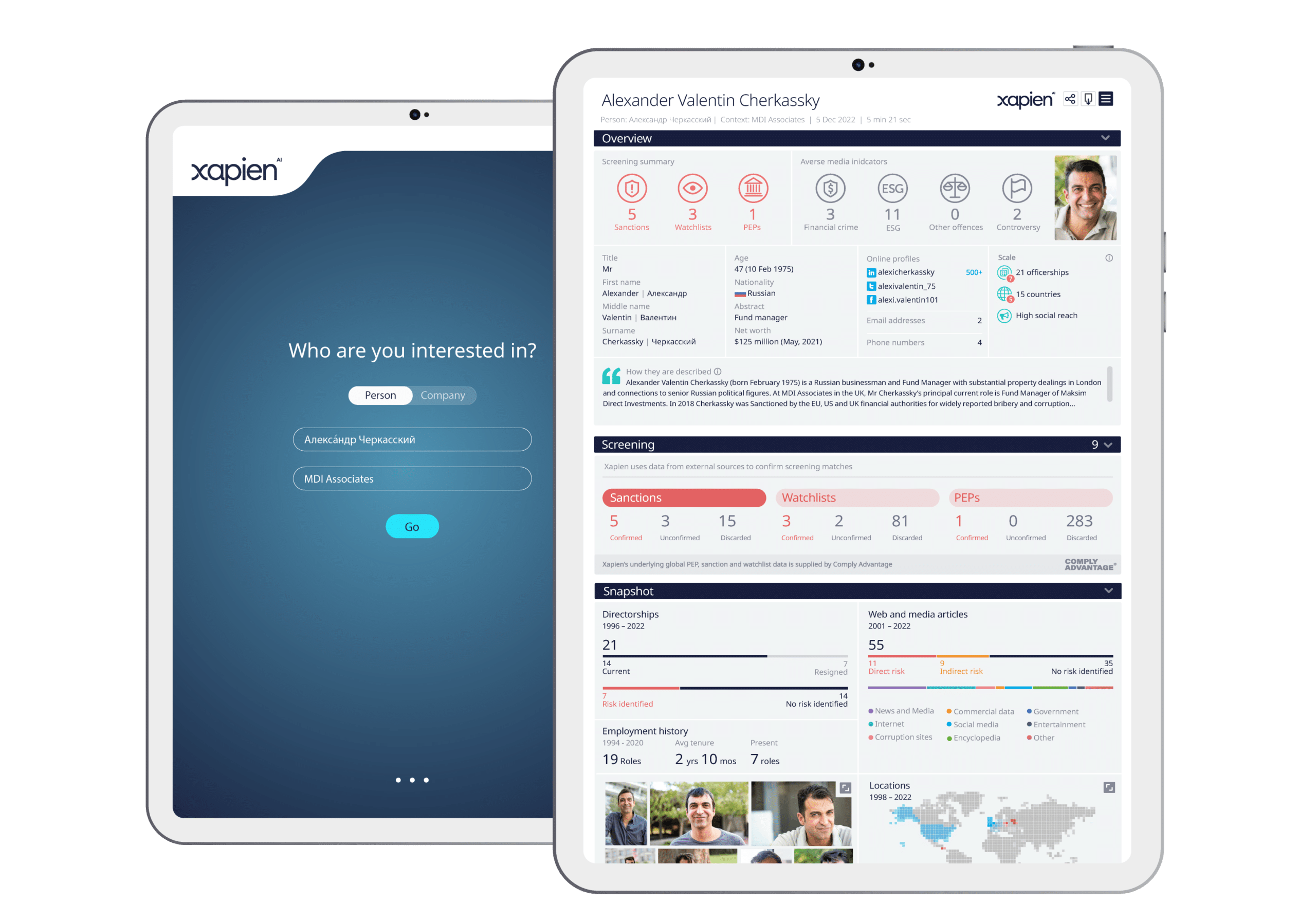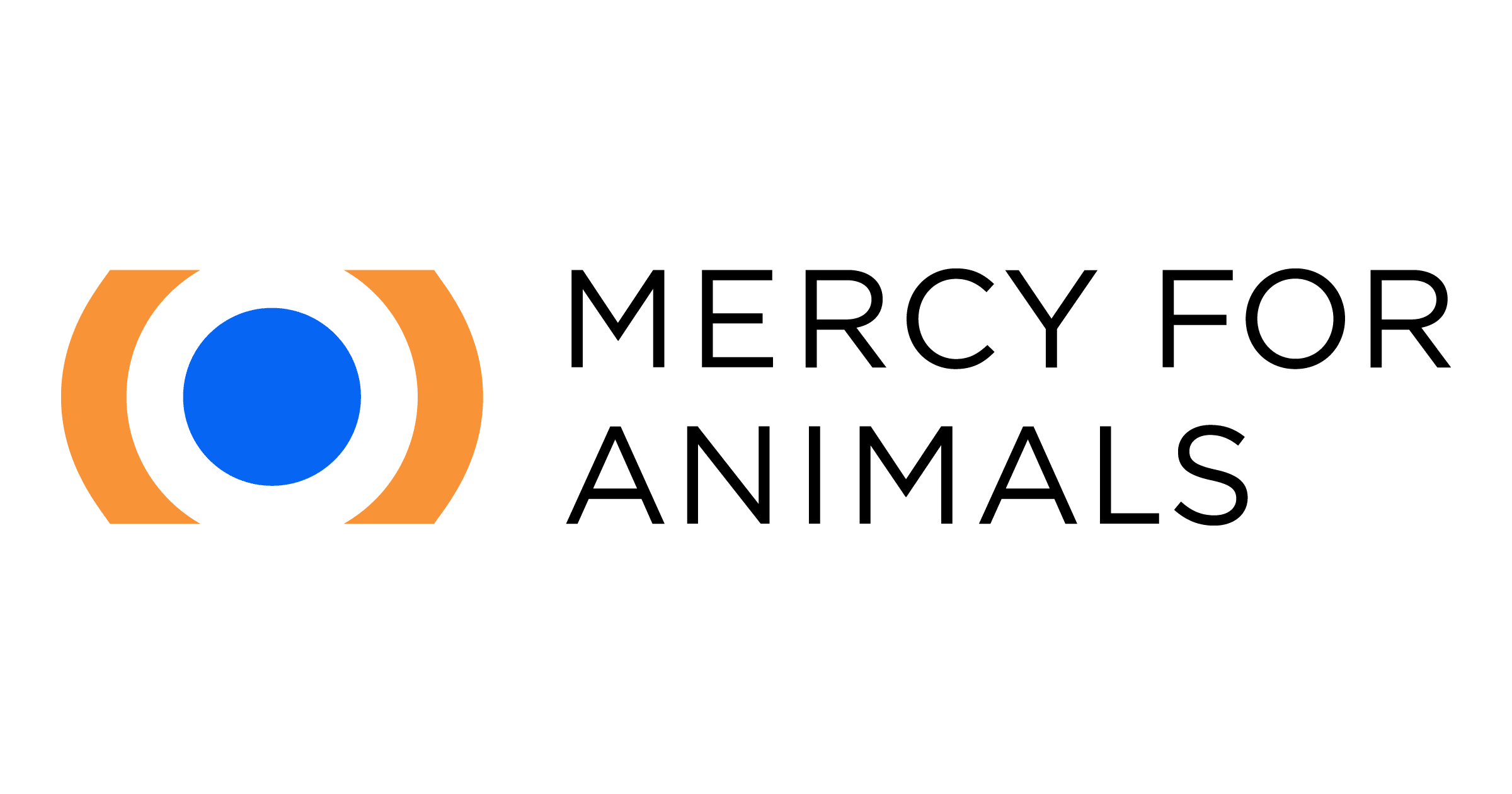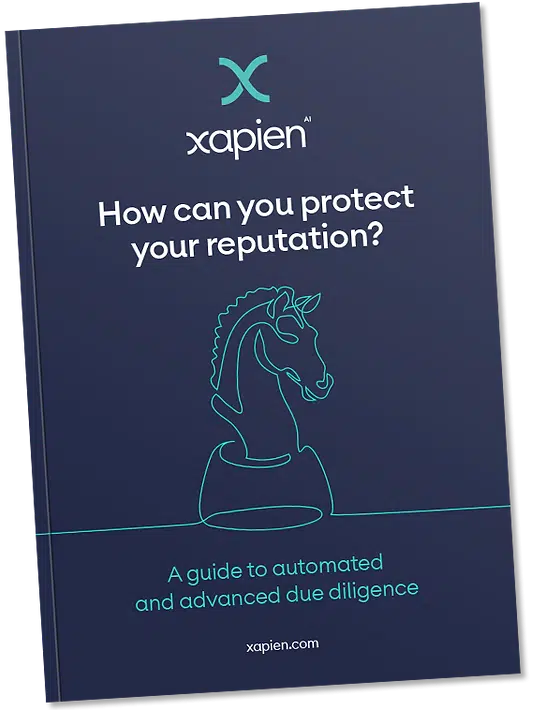Reputations take centuries to build, but just one headline to destroy. How are you protecting yours?
Now, more than ever, nonprofits need to know who they're accepting donations from.
Under the gaze of the media and activist shareholders, knowing donors from the start is vital. But to really know a donor means to know their associations, interests, and reputation. Screening data alone can’t provide this insight.


Insights come from deep research, not surface-level searches
Knowing a donor is more than just their sanctions exposure. You need to know if they have ties to industries and associates that don’t align with your and your stakeholder’s values and ESG priorities. But that means filtering through thousands of search engine results. And with fundraising goals to meet, time is a luxury neither you nor your fundraisers can afford
Protect your reputation with Xapien
“Xapien helped identify a potential future risk and saved a great deal of potential reputational fall out.”
Joe Forrest, Partnerships Researcher, Royal National Lifeboat Institution
Xapien doesn't stop at databases. It combs the entire indexed internet to deliver concise reports on individuals or companies worldwide. It casts a wide lens on potential donors – sorting their comprehensive risks from sanctions to allegations, corporate structures to key associates, and their wider online reputation. Its succinct reporting untangles the web of information, revealing deep insights instead of surface-level responses.








Our guide to protecting your reputation
Fundraisers are under unprecedented pressure to reach targets. At the same time, universities need to think responsibly about who they accept money from. Not all forms of reputational risk are predictable and preventable. But some are.
In this guide, we share due diligence best practices and how AI can enable universities to meet big fundraising targets without leaving themselves at risk of ending up on the front pages of the newspapers - for the wrong reasons.
Xapien streamlines due diligence
Xapien's AI-powered research and due diligence tool goes faster than manual research and beyond traditional database checks. Fill in the form to the right to book in a 30 minute live demonstration.







